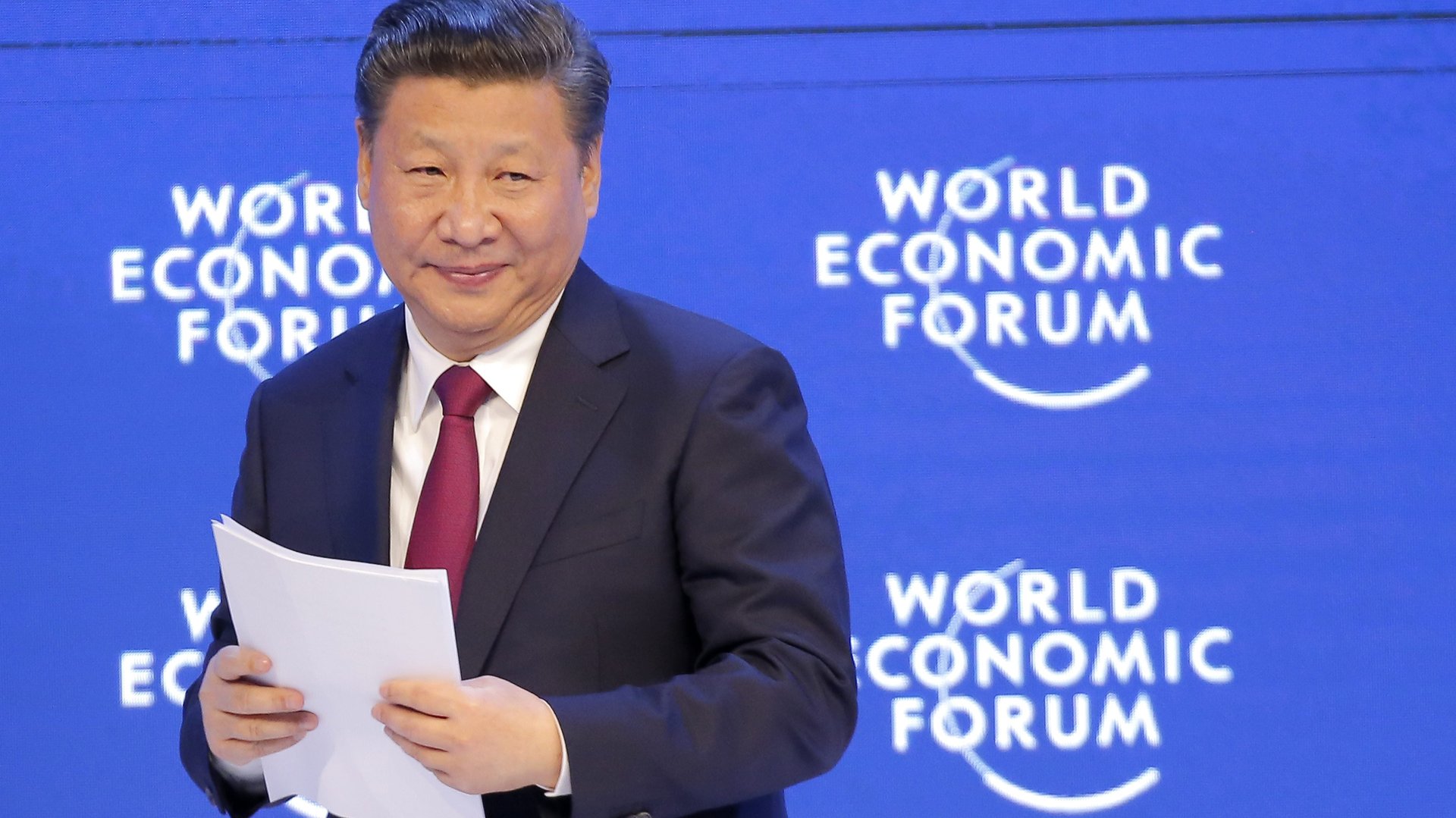Xi Jinping had better things to do than go to Davos
This year’s World Economic Forum at Davos has drawn a wide array of world leaders, including the heads of six of the G7 nations (yes, Donald Trump is there) and Indian prime minister Narendra Modi. Yet there is one important figure missing: Chinese president Xi Jinping.


This year’s World Economic Forum at Davos has drawn a wide array of world leaders, including the heads of six of the G7 nations (yes, Donald Trump is there) and Indian prime minister Narendra Modi. Yet there is one important figure missing: Chinese president Xi Jinping.
Last year, Xi positioned himself as globalization’s most vocal champion in a big coming-out speech in Davos. This year, however, he sent his right-hand man Liu He to explain China’s economic policy to the world elite, in a plenary session scheduled today (Jan. 24).
Xi apparently has other things to get on with. Yesterday (Jan. 23), he chaired a meeting of China’s leading body for guiding economic and social reforms, according to state news agency Xinhua (link in Chinese). The meeting saw the passage of a series of new regulations including ones that aim to strengthen China’s influence on the world stage.
One piece of regulation passed at the meeting relates to China’s ambitious “One Belt, One Road” (OBOR) initiative, a trillion-dollar infrastructure spending spree. China plans to set up a dispute settlement agency for the project, which will “equally protect Chinese and foreign people’s legal rights and interests, and create a stable, fair, transparent business environment with rule of law,” according to a state media summary (link in Chinese) of the regulation.
Another initiative calls for the reform and development of Confucius Institutes, a government-affiliated language teaching program present in dozens of countries across the world, including the US. The new regulation notes that Confucius Institutes need to serve China’s diplomatic strategy, with the purpose of building the country into a “socialist” cultural power.
OBOR and Confucius Institutes are two examples of China’s growing ambition to expand its hard and soft power in the world—but both are controversial. Proposed by Xi in 2013 as a revival of the ancient Silk Road trading routes, OBOR has raised concerns that participating countries—many of them developing economies in Asia and Africa—are taking on unrealistic financial obligations that can be used by Beijing as political leverage. Sri Lanka, for example, handed over a major port to China on a 99-year lease (paywall) after failing to repay some $8 billion in debts for OBOR-related projects.
Unlike other government-led language promotion programs, Confucius Institutes operate in universities, colleges, and secondary schools across the globe, which has raised alarms over China’s influence on academic freedom in foreign institutions. Beijing has also never been shy about its political agenda: A senior party official has described (paywall) Confucius Institutes as “an important part of China’s overseas propaganda set-up.”
A third piece of regulation passed at the meeting vows to ramp up China’s scrutiny over intellectual property (IP) transfers to foreign companies, citing national security as the reason. The Trump White House has accused Beijing of forcing US companies to transfer their IP to China as a cost of doing business there, but Beijing has denied such allegations.
While his counterparts are shuttling around the Swiss Alps, Xi seems to be happy taking a back seat this time, and focus on laying out his own strategy for China’s global role at home. Last week, state mouthpiece People’s Daily published a commentary calling on China to seize the “historic opportunity” to reshape the world order, as “the world has never focused on China so much and needed China so much as it does now.”